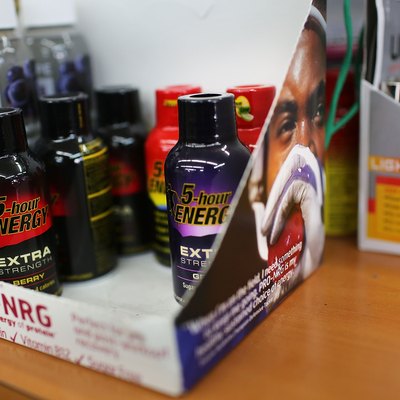


This Austrian company has a market share of 38% in the industry, and is the most popular energy drink worldwide selling 100 billion cans since 1987.Įach serving comes in an 8 oz. Red Bull is by all accounts, the household name when it comes to Energy drinks. You can’t drink this every day due to the high caffeine content An overview of Red Bull.Too much caffeine at one go (200mg) may cause symptoms like dizziness, headaches, and insomnia in some people.It contains just 4 calories (the daily calorie limit for adults is 2400 for women and 3000 for men).It is sugar-free so it is suitable for diabetics.The caffeine increases your metabolism and helps with calorie burning when you drink it before your workouts.It is small-sized and easy to carry around with you.It contains 200mg of caffeine in a relatively small serving which provides a rapid spike in energy levels.Here are the Pros and Cons of 5-hour Energy: This means that while there is no sugar in 5-hour Energy, you will be consuming artificial sweeteners in this product. Here is the ingredient list for a single serving (1.93 fl.oz bottle) of 5-hour Energy: Launched in 2004, it grew to an estimated $1 billion in sales by 2012, and has been gaining a significant amount of the market share year on year. It is made in America, and is manufactured by a company called Living Essentials LLC. It packs 200mg of caffeine in its small size, and contains a proprietary blend of B Vitamins and electrolytes that provides the user with an immediate energy boost. An Overview of 5-hour Energyĥ-Hour Energy is a nifty drink that gives you a powerful energy boost in a tiny 1.93 fl.oz package.

So which one is the healthier option of the two? Let’s find out. However, it has to be said that the energy drinks industry has built up a bad reputation for prioritizing their products’ energy-boosting effects while causing unhealthy side effects such as restlessness, irregular heartbeats, and chronic insomnia, to name a few. It will be worth the extra effort.An Overview of 5-hour Energy Pros and Cons of 5-hour Energy An overview of Red Bull Pros and Cons of Red Bull Which one is better for me? Conclusion Instead, concentrate on effective training, healthy eating and getting adequate rest. If you’re looking for a boost of energy, don’t put your health at risk by reaching for an energy drink. Children with predisposing conditions may be at an even higher risk of cardiac arrhythmias with use of energy drinks.” They have also been reported to cause very serious problems such as seizures, cardiac events, and even death.Ĭhristopher Rausch, MD, Director of the Cardiopulmonary Exercise Laboratory at Children’s Hospital Colorado states, “I have seen many teenage patients who report palpitations (a sensation of abnormal heart beats) in association with using energy drinks and these symptoms have resolved when they stopped using energy drinks. High doses of caffeine may work together with the other ingredients in energy drinks to cause adverse reactions like sleep disturbances, increased blood pressure, increased heart rate, anxiety, irritability and vomiting. They may contain up to 400 mg of caffeine per serving (that’s equivalent to 11 sodas or 4 coffees). Why the strong warning against energy drinks? The FDA does not regulate the amount of caffeine and other stimulants found in energy drinks.



 0 kommentar(er)
0 kommentar(er)
